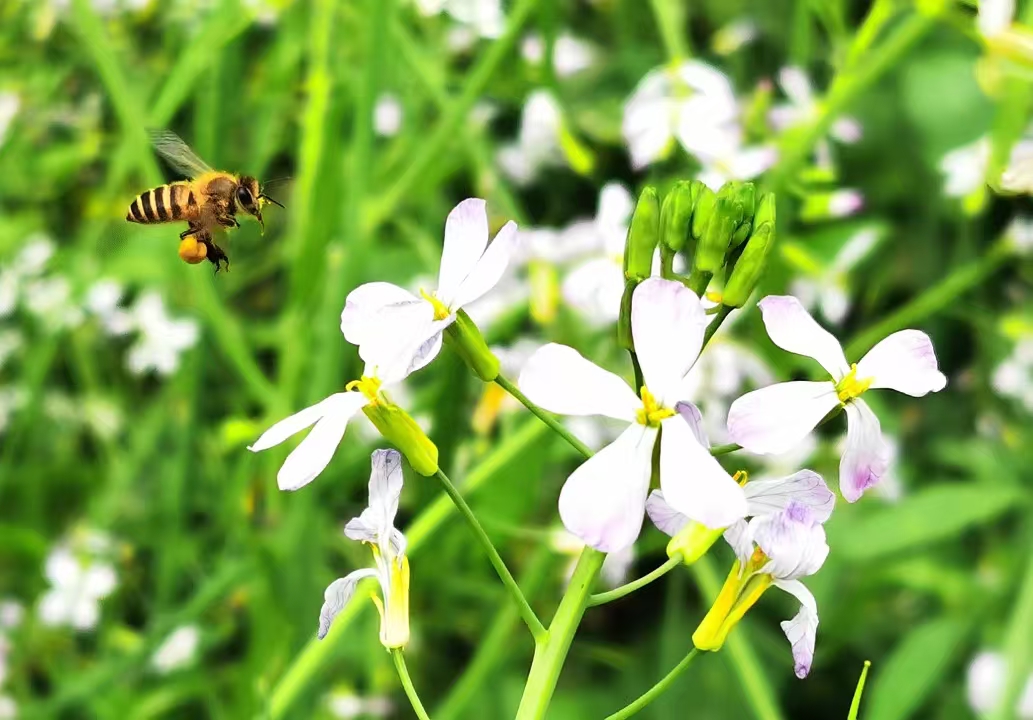Predators in ecosystems affect prey through direct (e.g. predation) and indirect (e.g. fear responses) ways. Prolonged exposure to predator stress causes animals to exhibit fear-like behavior, which is related to brain hormone levels.
Dopamine may affect multiple neural pathways and processes, and honey bees can alter brain biogenic amine levels in response to stress stimuli, leading to changes in neural responses and behaviors.
In a study published in Journal of Animal Ecology, researchers from Xishuangbannna Tropical Botanical Garden (XTBG) and the University of California, San Diego showed that the fear response of honeybees to predators was mediated by dopamine, and this response not only increased the alertness of honeybees but also affected their cognitive abilities.
The researchers observed changes in honeybee behavior when faced with simulated predator threats, including increased alertness and reduced foraging behavior. Meanwhile, through neurobiological techniques, the researchers analyzed the role of dopamine in this process.
When encountering hornets, the honeybees exhibited fear behavior, which was manifested by a reduction in the time spent near the hornets and fleeing at a faster speed. However, after 24 hours of hornet stress, the honeybees displayed defensive clustering behavior, and there was a decrease in dopamine levels in their brains.
Prolonged exposure to predators also reduced the bees' olfactory sensitivity to scents and mechanical sensitivity to airflow, leading to impaired olfactory associative learning ability. Artificially increasing the dopamine levels in the bees' brains alleviated their fear of hornets and to some extent restored the bees' olfactory sensitivity and learning ability.
The study suggested that dopamine played a role in regulating insect fear behavior and was closely related to declines in olfaction and cognition. It also indicated that fear-like behavior, such as group clustering and reduced movement in individual bees, can spread from individuals to the entire group, similar to fear transmission in other animals
“We provide the first demonstration that exposure to hornets can harm honeybee antennal functioning, reducing the ability of the antennae to detect odors. This reduction in antennal functioning likely contributed to the significant decrease in learning in bees exposed to hornets,” said DONG Shihao, a corresponding author of the study.

Honeybee on flowers. (Image by DONG Shihao)
Published: 19 November 2024

